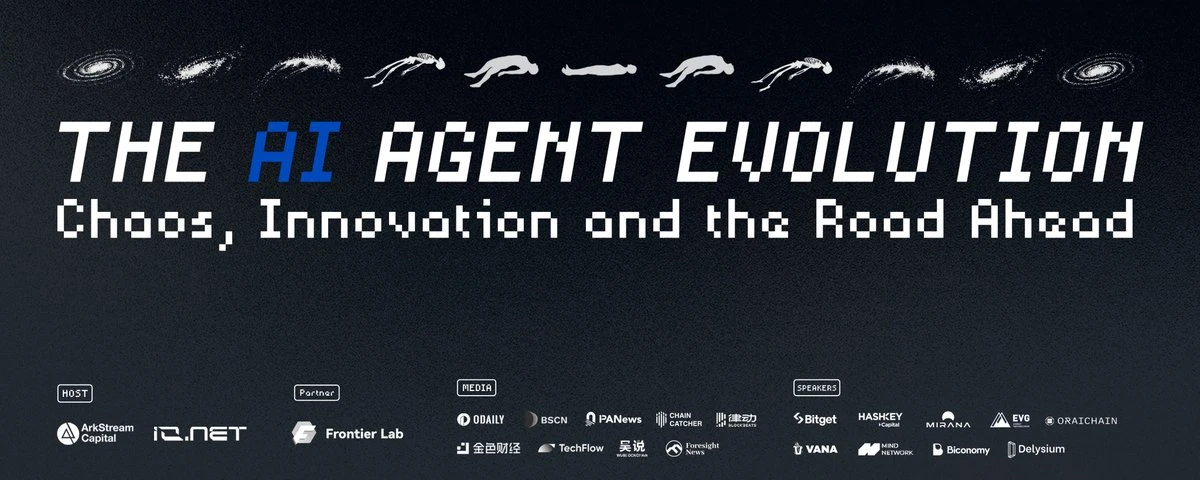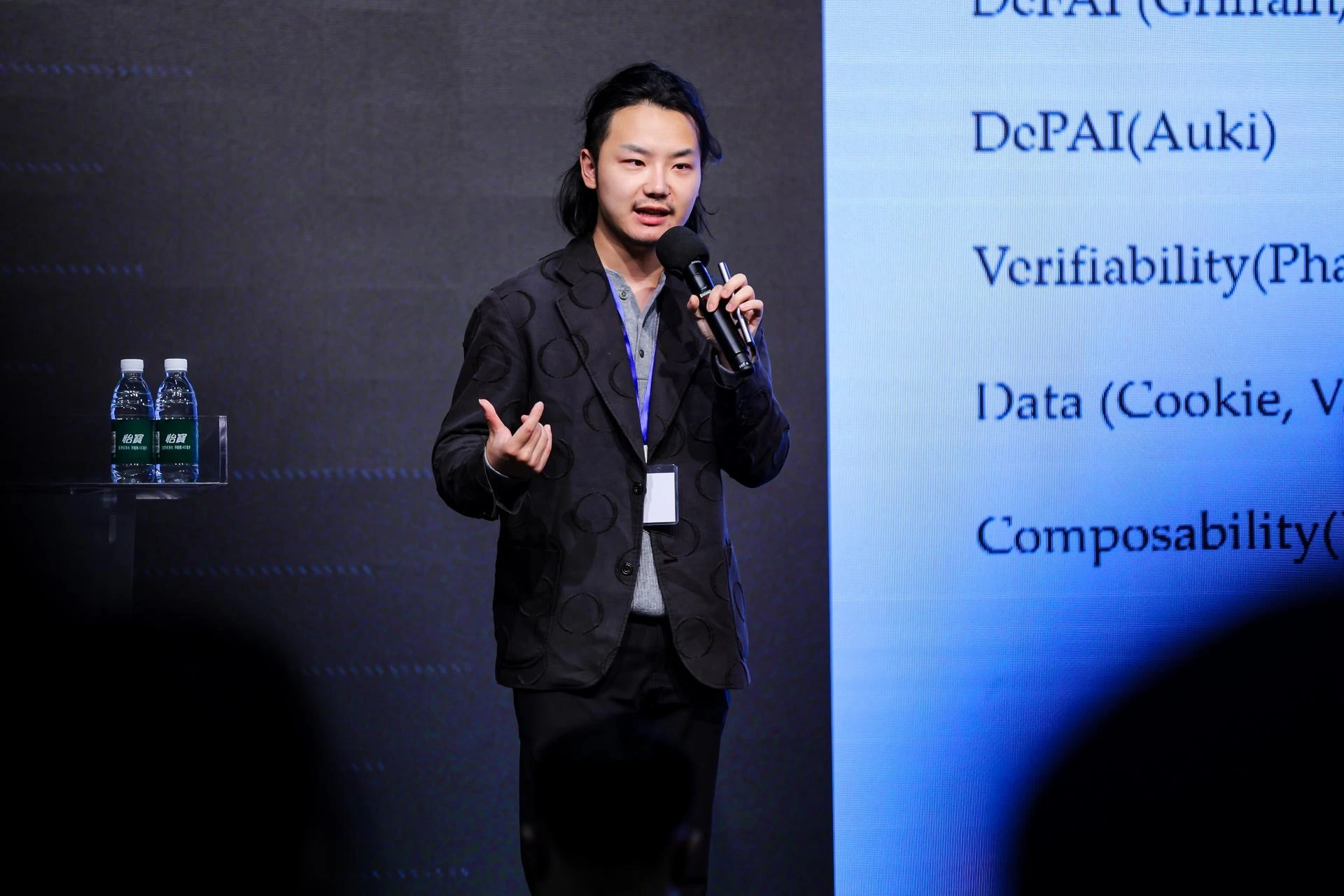On February 17, the event “THE AI AGENT EVOLUTION — Chaos, Innovation and the Road Ahead” co-organized by ArkStream Capital and io.net came to a successful conclusion.
The event aims to explore the future of AI agents and their impact on the crypto space. The event brings together industry leaders, investors, and innovators to discuss the latest developments, challenges, and opportunities at the intersection of artificial intelligence and blockchain technology.

Ye Su, founding partner of ArkStream, opened the event with a speech titled Whats the Next for AI Agent, highlighting the significant growth and subsequent decline in the market value of AI agent projects - their combined market value peaked at $20 billion in January 2025 and then fell to approximately $7 billion; discussed the impact of DeepSeek, a new AI model developed in Hangzhou, which provides a more efficient algorithm with significantly reduced training costs; and shared five key predictions for 2025, including the rise of AI-driven decentralized finance, decentralized physical AI agents (DePAI), verifiability achieved through blockchain, the importance of decentralized data infrastructure, and the need for interoperability between blockchain networks.

The following is a summary of Ye Su’s speech.
The rise of AI agents and market dynamics
The AI agent ecosystem has experienced rapid growth and volatility. In early 2025, the industry peaked at $20 billion in market value, driven by innovations such as GOAT. However, the market subsequently quickly corrected to around $7 billion, reflecting the current situation of speculative hype and long-term potential.
Key drivers include:
Consumer-level innovation: Projects like AIXBT and Virtuals demonstrate the ability of AI agents to automate tasks, provide financial advice, and even generate content, highlighting their potential to go beyond simple chatbots.
Web3 Integration: Blockchain’s verifiable computation and tokenized incentives are critical to ensuring transparency and trust in the operation of AI agents, a gap that traditional Web2 systems cannot fill.
DeepSeek: A catalyst for the democratization of AI
The presentation highlighted DeepSeek, a breakthrough open source AI model developed by a Hangzhou company that can be trained for as little as $5.5 million — a fraction of the cost of traditional large language models (LLMs) — and embodies the shift toward affordable, decentralized AI infrastructure. DeepSeek’s lightweight design enables it to be deployed on personal devices, in line with the trend of edge computing and Internet of Things (IoT) integration.
The role of Web3 in the autonomous AI ecosystem
Ye Su also emphasized the three-layer framework of AI agents in Web3:
Reasoning layer: driven by large language models (LLMs) such as DeepSeek, supporting decision making and problem solving.
Execution layer: Blockchain-based verification of AI behavior, ensuring immutable proof of work (e.g. Elon XAI’s “proof of everything” concept).
Incentive layer: Tokenized economic rewards for cross-platform collaboration of AI agents, solving compatibility challenges in multi-agent systems.
Five predictions for AI agents in 2025
DeFAI: AI agents will autonomously manage crypto investments, yield management, and risk assessment, mimicking human-level financial decision-making.
Decentralized Physical AI (DePAI): Agents will bridge the digital and physical worlds, control IoT devices (such as smart homes) and perform real-world tasks through blockchain-secured protocols.
Verifiability: Projects like Phala and Space and Time will enable transparent verification of AI outputs, which is critical for regulatory compliance and user trust.
Data is currency: Decentralized data markets (such as Vana, Cookie) will power AI training, ensuring privacy and fair monetization for contributors.
Composability: A unified protocol will enable AI agents to operate seamlessly across blockchain networks, addressing the fragmentation of the current ecosystem.
5. Challenges and long-term vision
Despite the enthusiasm for AI agents, Ye Su acknowledged some hurdles in his talk:
Ethical risks: Ensuring that AI agents avoid bias, protect privacy, and align with human values requires a robust regulatory framework.
Market maturity: Current projects are still in the experimental phase, and many struggle to demonstrate sustainable use cases beyond speculative trading.
Ye Su concluded his speech with an optimistic outlook: “AI agents are more than just tools — they are the cornerstone of a new Internet where value, intelligence, and autonomy converge. The infrastructure of Web3 will unlock their full potential and create a future where humans and agents work seamlessly together.”










